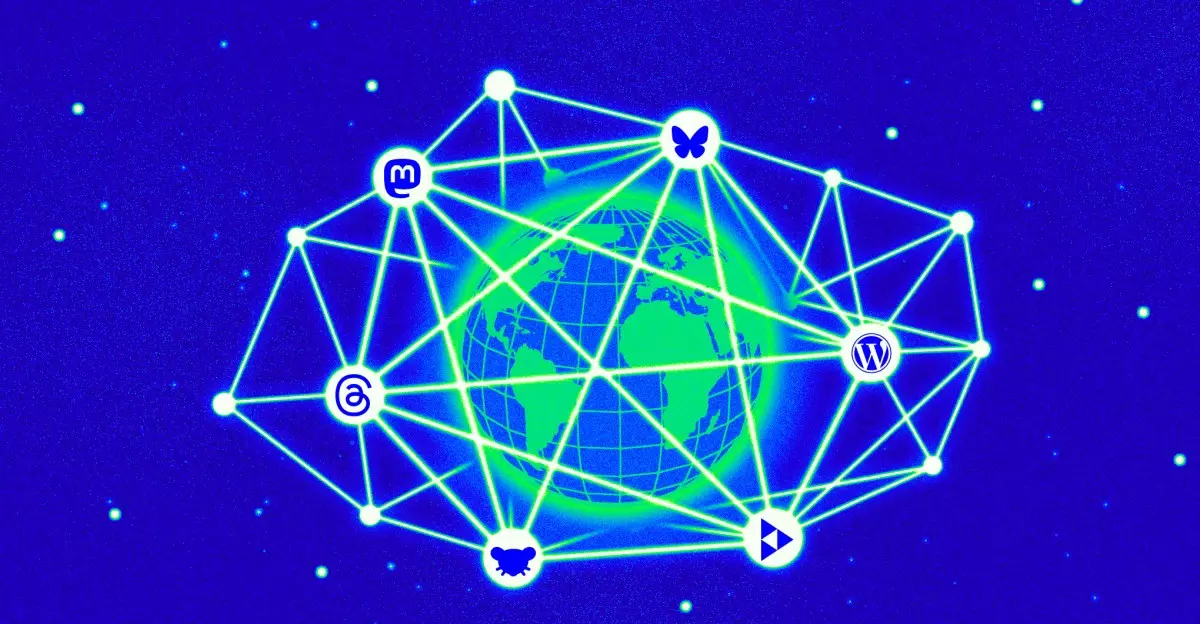The digital landscape is shifting dramatically as decentralized social networks gain traction, challenging the traditional paradigms of online interaction. As major players in the tech ecosystem like Bonfire Social, Channel.org, and Bounce emerge, they pave the way for a more open and user-centric web experience. In a world where privacy concerns and data privacy violations have become commonplace, the arrival of these innovative platforms offers a refreshing alternative that champions user autonomy and community governance.
Bonfire Social: A New Community Framework
One of the standout applications showcased at recent forums is Bonfire Social. This platform serves as a blueprint for users to create and manage their own digital communities. Unlike conventional social media platforms, which operate under a one-size-fits-all model, Bonfire Social offers personalized governance and customizability. The rollout of Bonfire Social 1.0 signifies the project’s commitment to user empowerment, including features like custom feeds, profiles, and threaded discussions.
The introduction of varied “flavors” of Bonfire Social is particularly noteworthy. With options designed for both community engagement and academic collaboration, the platform nurtures distinct ecosystems that are tailored to specific user needs. This level of customization elevates the potential for meaningful interactions, encouraging members to contribute more actively and thoughtfully.
Channel.org: Curating Your Digital World
On the other end of the spectrum, Channel.org emerges as a game-changer in content curation. In an age saturated with information overload, Channel.org offers users the capability to craft personalized feeds that reflect their interests and preferences. By enabling users to track specific hashtags, manage subscriptions, and employ advanced filtering mechanisms, Channel.org is championing the concept of intentional consumption—an antidote to mindless scrolling.
Moreover, its integration with platforms like Bluesky and the use of RSS technology extends the reach of user-generated channels across the Fediverse. This cross-platform synergy fosters richer connections and expands the community dynamic. The built-in filters to shield against NSFW content and hate speech further enhance the platform’s usability, creating a safer environment for discourse. While currently in an invite-only beta stage, Channel.org holds great promise for anyone desiring a more intentional social media experience.
Bounce: Bridging Communities Seamlessly
Adding to the evolving picture of decentralized social interaction is Bounce, an app designed to facilitate the migration of users from Bluesky to Mastodon without losing their follower base. In a time when users feel tethered to platforms by their connections, Bounce offers a liberating solution. The ability to transition between networks while maintaining social capital speaks volumes about the creators’ understanding of user psychology and the importance of community.
The technology behind Bounce, developed by A New Social, leverages the Bridgy Fed tool to ensure compatibility between popular social platforms. This focus on interoperability is a central tenet for the future of social media, fostering a network of platforms that communicate seamlessly with one another. With Bounce, users no longer need to fear the repercussions of updating their digital presence.
The Future Tides of Digital Connectivity
As we dive deeper into the age of decentralization, the efforts of Bonfire Social, Channel.org, and Bounce shed light on the road ahead. These platforms are not just technological innovations; they represent a cultural shift towards user-driven online interaction. The interplay of governance, content curation, and seamless connectivity marks a sophisticated understanding of the modern user’s needs.
This evolution beckons the question of what social media could look like if user experience and community governance are prioritized. With these new entrants into the open web arena, we may be witnessing the dawn of a movement that enables individuals to reclaim their voices amidst the noise and chaos of centralized platforms. The ongoing developments will be crucial in shaping a digital environment where users can engage more meaningfully and safely.

